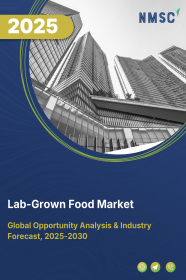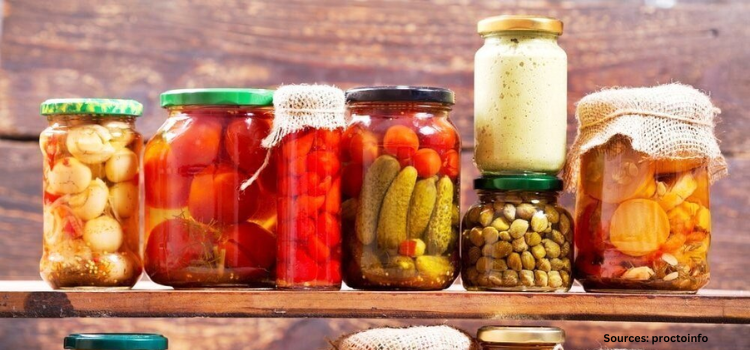
Sweeteners Market by Product (Sucrose, High Fructose corn Syrup, Natural Sweeteners, Artificial Sweeteners, Novel Sweeteners, Polyols and Others), by Application (Food and Beverages, Personal Care Products, Pharmaceuticals and Others), and by End-User (Residential and Commercial)– Global Opportunity Analysis and Industry Forecast 2024-2030
US Tariff Impact on Sweeteners Market
Trump Tariffs Are Reshaping Global Business
Market Overview
The global Sweeteners Market size was valued at USD 129.59 billion in 2023 and is predicted to reach USD 188.67 billion by 2030 with a CAGR of 5.49% from 2024-2030. Sweeteners are food additives employed to enhance the perception of sweetness in various food and beverage products. These agents are widely appreciated for their ability to enhance the flavour of foods and beverages without the caloric load associated with sugar. They play a crucial role in managing diabetes by providing a sweet taste without causing significant spikes in blood sugar levels. Sweeteners includes its usage for various purposes such as enhancing product palatability, improve processing efficiency, prolonging product freshness, and addressing specific dietary needs and others.
Market Dynamics and Trends
The growing global health concerns, such as obesity and diabetes, is significantly fuels the sweeteners market. Health-conscious individuals and those managing blood sugar levels seek substitutes offering natural sweetness without added calories, making sweeteners appealing options. According to a report published by the International Diabetic Federation Atlas in 2021, approximately one in ten individuals, totalling 537 million adults aged 20 to 79, are currently living with diabetes. This figure is projected to rise to 643 million by 2030 and further to 783 million by 2045. This surge in health issues necessitates the availability of low-calorie or sugar-free alternatives, leading to an increased requirement for sweeteners and thereby driving market growth.
Moreover, the growth in nutrition industry driven by increasing health consciousness among consumers, leads to a surge in demand for alternatives to traditional sugars. According to Global Institute wellness report as of 2023, worldwide healthy eating, nutrition, & weight loss sector grew from USD 911 billion in 2019 to USD 1,079 billion in 2022. This heightened shift towards healthy living makes consumers to choose natural substitutes and puts emphasis on nutrition drives innovation within the sweeteners market, leading to the development of new products and formulations to meet evolving consumer preferences thereby increasing the market growth.
Furthermore, the processed food industry utilizes sweeteners in their products as consumers prioritize healthier dietary choices. By serving multitude of purposes, from enhancing flavor and extending shelf life to reducing sugar content, demand for healthier options in processed foods is met by sweeteners that propels the growth of the sweeteners market. According to National Institutes of Health report of 2022, globally, per capita volumes of non-nutritive sweeteners (NNS) from beverage sales have shown a 36% increase and added sugars from packaged food sales saw a 9% increase in regions with more policy actions. These trends underscore the growing importance of sweeteners in shaping industry dynamics and meeting consumer preferences for healthier products, thereby propelling the sweeteners market growth.
However, sweeteners such as erythritol, despite being promoted as sugar substitutes have been associated with health issues such as metabolic disorders, weight gain, and digestive problems. Consumers are becoming more aware of these risks and might avoid products containing sweeteners, thus restraining the growth of the sweeteners market.
On the contrary, as consumers persist in favouring products containing natural and easily recognizable ingredients, the clean label trend that reflects consumers preference for food and beverage products with simple, recognizable ingredients, avoiding artificial additives and chemicals is poised to significantly impact the sweeteners market, leading to a surge in demand for sweeteners sourced from natural origins. This shift is expected to generate ample growth opportunities for the sweeteners market in the coming years.
Market Segmentations and Scope of the Study
The sweeteners market is segmented on the basis product, application, end user and region. On the basis of product, the market is divided into sucrose, high fructose corn syrup, natural sweeteners, artificial sweeteners, novel sweeteners, polyols and others. Based on application, the market is divided into food and beverages, personal care products, pharmaceuticals and others. On the basis of end-user, the market is segmented into residential and commercial. Regional breakdown and analysis of each of the aforesaid segments includes regions comprising of North America, Europe, Asia-Pacific, and Rest of The World (Row).
Geographical Analysis
Asia-Pacific region holds the dominating share in the sweeteners market during the forecast period. This is attributed to the growing bakeries and confectioneries industry in the region. As the demand for healthier food choices continue to rise, there's a growing emphasis on the importance of sweeteners in meeting evolving consumer preferences. According to U.S. Department of Agriculture report of 2021, sales of baked goods in China reached USD 34 billion in 2020, comprising 9 percent of global retail sales, and these sales are forecasted to surge to USD 53 billion by 2025, reflecting a remarkable 53-percent increase from current levels.
Moreover, the increasing health issues in the Asia-Pacific region is a key factor driving the growth of sweeteners. As consumers become increasingly aware of health issues such as obesity and diabetes, there is a growing demand for healthier alternatives to sugar. According to International Diabetes Federation report of 2024, in the Western Pacific Region, there are presently 206 million individuals living with diabetes, with Japan reporting an 11.8% prevalence of diabetes in adults, and China documenting a 13% prevalence of diabetes in adults. With increasing health consciousness, individuals are opting for natural sugar alternatives, leading to a significant surge in the sweeteners market's growth. This surge in health issues necessitates the availability of low-calorie or sugar-free alternatives, leading to an increased requirement for sweeteners and thereby driving market growth.
On the other hand, North America is expected to show a steady rise in the sweeteners market due to growing pharmaceutical industry in the region. Sweeteners are commonly integrated into medications in this region to enhance taste, mask bitterness, and improve palatability, thereby making it easier for patients to consume their medication. They also help create sugar-free or low-sugar options for patients with dietary restrictions such as diabetes. According to Pharmaceutical Research and Manufacturers of America (PhRMA) report of 2021, U.S. is one of the largest biopharmaceutical industries in the world, with the sector contributing about 1.6% of the country’s GDP in 2021. The flourishing industry necessitates sweeteners in promoting patient compliance and facilitating the development of stable liquid formulations and oral care products thereby contributing market expansion.
Moreover, stringent government regulations in North America drives the growth in the sweeteners market. These regulations encourage innovation, prompting companies to invest in research to create compliant sweetener formulations that satisfy both consumer demands and regulatory standards. According to Public Health Law Centre, substances, including artificial sweeteners, can be utilized in food and beverages if permission for their usage is granted by the U.S. Food and Drug Administration (FDA). Presently, the FDA has approved six artificial high-intensity sweeteners for use as food additives such as acesulfame-potassium, advantame, aspartame, neotame, saccharin, and sucralose, by ensuring such compliance with high standards, the sweeteners market is poised for further advancement and innovation.
Competitive Landscape
Various market players operating in the Sweeteners market includes Ajinomoto Co. Inc., Cargill, Batory Foods, Eden Foods Inc., Futaste Co., Ltd., Health Connection Wholefoods, Hermes Sweeteners Ltd., Impala Imperial Sugar Company, JK Sucralose Inc., Merisant Worldwide Inc., Nestlé S.A., Sweetener Solutions, Sigma Aldrich Pte. Ltd., Tereos SA. and others. These market players are adopting various strategies such as collaboration, product launch, and acquisition to remain dominant in the market.
For instance, in July 2023, Nestlé S.A launched cost-effective sugar reduction technology. The technology aimed at Using an enzymatic process to reduce the natural sugar content in ingredients such as malt, milk, and fruit juices by as much as 30%, while minimally affecting taste and texture.
Moreover, in February 2023, Tereos Cooperative Group, collaborated with two independent investors from Romania, acquired the Tereos' sugar operations located in Ludus, Romania. The objective of the takeover is to revitalize and strengthen the sugar production sector within the country, thereby ensuring sustained domestic supply.
Furthermore, in May 2022, Batory Food acquired Savannah based Sweetener Solutions. Through this acquisition Batory Food enhances their capabilities and ingredients portfolio enabling the provision of solutions for reducing and replacing sugar in the market.
KEY BENEFITS
-
The report provides quantitative analysis and estimations of the sweetener market from 2024 to 2030, which assists in identifying the prevailing market opportunities.
-
The study comprises a deep-dive analysis of sweetener market including the current and future trends to depict prevalent investment pockets in the market.
-
Information related to key drivers, restraints, and opportunities and their impact on the sweetener market is provided in the report.
-
Competitive analysis of the players, along with their market share is provided in the report.
-
SWOT analysis and Porters Five Forces model is elaborated in the study.
-
Value chain analysis in the market study provides a clear picture of roles of stakeholders.
KEY MARKET SEGMENTS
By Product
-
Sucrose
-
High Fructose corn Syrup
-
Natural Sweeteners
-
Artificial Sweeteners
-
Novel Sweeteners
-
Polyols
-
Others
By Application
-
Food and Beverages
-
Personal Care Products
-
Pharmaceuticals
-
Others
By End-User
-
Residential
-
Commercial
By Region
-
North America
-
The U.S.
-
Canada
-
Mexico
-
-
Europe
-
The U.K.
-
Germany
-
France
-
Italy
-
Spain
-
Denmark
-
Netherlands
-
Finland
-
Sweden
-
Norway
-
Russia
-
Rest of Europe
-
-
Asia-Pacific
-
China
-
Japan
-
India
-
South Korea
-
Australia
-
Indonesia
-
Singapore
-
Taiwan
-
Thailand
-
Rest of Asia-Pacific
-
-
Rest of the World (RoW)
-
Latin America
-
Middle East
-
Africa
-
REPORT SCOPE AND SEGMENTATION:
|
Parameters |
Details |
|
Market Size in 2023 |
USD 129.59 billion |
|
Revenue Forecast in 2030 |
USD 188.67 billion |
|
Growth Rate |
CAGR of 5.49% 2024 to 2030 |
|
Analysis Period |
2023–2030 |
|
Base Year Considered |
2023 |
|
Forecast Period |
2024–2030 |
|
Market Size Estimation |
Million (USD) |
|
Growth Factors |
|
|
Countries Covered |
28 |
|
Companies Profiled |
10 |
|
Market Share |
Available for 10 companies |
|
Customization Scope |
Free customization (equivalent to up to 80 working hours of analysts) after purchase. Addition or alteration to country, regional, and segment scope. |
|
Pricing and Purchase Options |
Avail customized purchase options to meet your exact research needs. |
KEY PLAYERS
-
Ajinomoto Co. Inc.
-
Cargill
-
Batory Foods
-
Eden Foods Inc.
-
Health Connection Wholefoods
-
Hermes Sweeteners Ltd.
-
JK Sucralose Inc.
-
Nestlé S.A.
-
Sweetener Solutions
-
Tereos SA

















 Speak to Our Analyst
Speak to Our Analyst





















